
Filter News
Area of Research
- (-) National Security (26)
- (-) Nuclear Science and Technology (2)
- (-) Supercomputing (73)
- Advanced Manufacturing (1)
- Biological Systems (1)
- Biology and Environment (56)
- Building Technologies (1)
- Clean Energy (63)
- Computational Engineering (1)
- Computer Science (2)
- Electricity and Smart Grid (1)
- Energy Sciences (1)
- Fuel Cycle Science and Technology (1)
- Fusion and Fission (19)
- Fusion Energy (3)
- Isotope Development and Production (1)
- Isotopes (15)
- Materials (76)
- Materials Characterization (2)
- Materials Under Extremes (1)
- Neutron Science (32)
News Topics
- 3-D Printing/Advanced Manufacturing (1)
- Advanced Reactors (1)
- Artificial Intelligence (18)
- Big Data (4)
- Bioenergy (3)
- Biology (4)
- Biomedical (2)
- Biotechnology (2)
- Chemical Sciences (1)
- Climate Change (9)
- Computer Science (12)
- Coronavirus (1)
- Critical Materials (1)
- Cybersecurity (7)
- Decarbonization (3)
- Energy Storage (1)
- Environment (6)
- Exascale Computing (12)
- Frontier (15)
- Fusion (1)
- Grid (1)
- High-Performance Computing (19)
- Machine Learning (9)
- Materials (6)
- Microscopy (1)
- Nanotechnology (2)
- National Security (15)
- Net Zero (1)
- Neutron Science (1)
- Nuclear Energy (6)
- Partnerships (3)
- Physics (1)
- Quantum Computing (7)
- Quantum Science (4)
- Security (2)
- Simulation (9)
- Software (1)
- Summit (6)
- Sustainable Energy (2)
- Transportation (2)
Media Contacts

The U.S. Department of Energy’s (DOE) Innovative and Novel Computational Impact on Theory and Experiment (INCITE) program is now accepting proposals for high-impact, computationally intensive research campaigns in a broad array of science, engineering and computer science domains. Proposals must be submitted between April 10, 2023 and June 16, 2023.

ORNL has named Prasanna Balaprakash to direct its artificial intelligence efforts. The laboratory’s AI Initiative coordinates efforts across its varied research directorates to harness the power of AI and data science in tackling some

ORNL has named Michael Parks director of the Computer Science and Mathematics Division within ORNL’s Computing and Computational Sciences Directorate. His hiring became effective March 13.
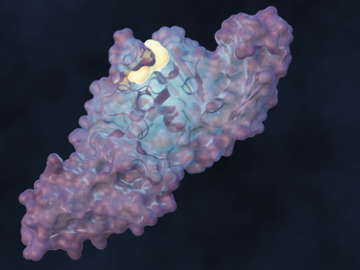
A team of scientists led by the Department of Energy’s Oak Ridge National Laboratory designed a molecule that disrupts the infection mechanism of the SARS-CoV-2 coronavirus and could be used to develop new treatments for COVID-19 and other viral diseases.
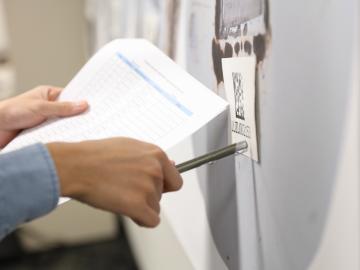
Four nuclear nonproliferation staff members from the Department of Energy’s Oak Ridge National Laboratory were recognized as part of the 2021 Outstanding Security Team awarded by the Secretary of Energy for contributions to the Material Control and Accountability Technical Qualification Program Pilot.
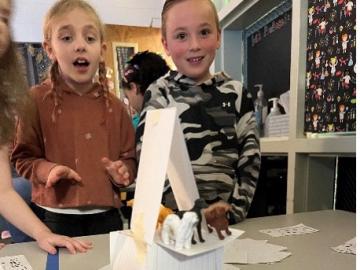
Nine engineers from ORNL visited 10 elementary and middle school classrooms in three school districts during National Engineers Week, Feb. 21 to 24, 2023, describing and demonstrating the excitement of the engineering profession to more than 300 Tennessee students.
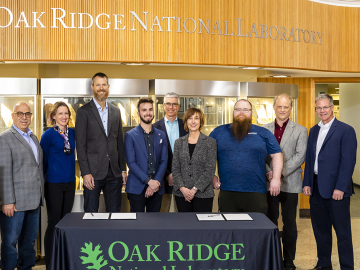
A technology developed at ORNL and used by the U.S. Naval Information Warfare Systems Command, or NAVWAR, to test the capabilities of commercial security tools has been licensed to cybersecurity firm Penguin Mustache to create its Evasive.ai platform. The company was founded by the technology’s creator, former ORNL scientist Jared M. Smith, and his business partner, entrepreneur Brandon Bruce.
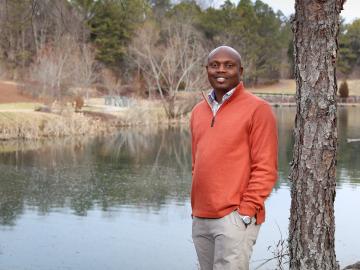
Stephen Dahunsi’s desire to see more countries safely deploy nuclear energy is personal. Growing up in Nigeria, he routinely witnessed prolonged electricity blackouts as a result of unreliable energy supplies. It’s a problem he hopes future generations won’t have to experience.
The Autonomous Systems group at ORNL is in high demand as it incorporates remote sensing into projects needing a bird’s-eye perspective.
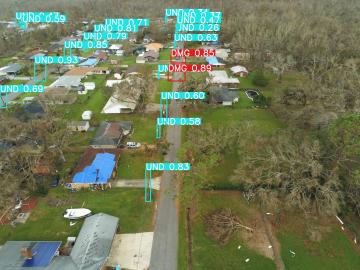
A team of researchers from ORNL has created a prototype system for detecting and geolocating damaged utility poles in the aftermath of natural disasters such as hurricanes.


